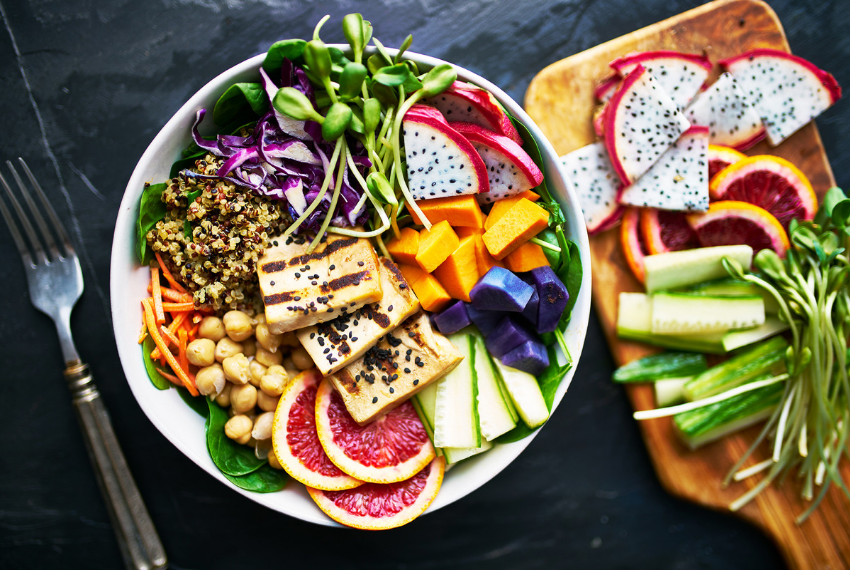
A balanced and healthy gut microbiome is essential for optimal immune function and resiliency, and both the intestinal microbial community as well as their metabolites impact host health system-wide. Supporting commensal gut microbes through a diverse, plant-based diet of fibers and prebiotic foods may ensure abundance of not only beneficial bacteria, but also those fermentation by-products, or postbiotics, that demonstrate nutritional, metabolic, and immune health benefits.
Plant-based foods and chronic disease
Evidence supports the consumption of plant foods for positive effects on health, including lowering blood pressure, cholesterol levels, body mass, and inflammation.1,2 Whole food, plant-based diets are also effective therapeutic strategies for combatting chronic diseases, and have been suggested to:
- Decrease risk of cardiovascular disease, diabetes, obesity, and cancer.2-4
- Slow the progression of chronic kidney disease.2
- Improve depression and anxiety symptoms as an adjunctive therapy.5
- Provide benefits for those with chronic fatigue, pain, and insomnia.5
- Aid in the prevention of ulcerative colitis relapse.6
The list goes on, but what are the mechanisms behind the benefits of a plant-based diet, or adding more plant foods to a nutrition plan? The relationship between fiber-rich foods that include prebiotics and the gut microbiota’s fermentation by-products is an important component.
From prebiotic foods to postbiotic abundance
Soluble and insoluble fibers are indigestible carbohydrates that are available in plants and plant-based foods. While insoluble fibers benefit a healthy system by aiding in the efficient elimination of wastes, soluble fibers promote fermentation by the gut microbial community. And prebiotics, nutrients selectively used by host microorganisms resulting in health benefits,7 are present in plant-based, fiber-rich foods. In order for substrates to be classified as a prebiotic, certain criteria are required, such as:7
- Documented beneficial health effects.
- Selective microbiota-mediated mechanisms.
- May include non-carbohydrate substances.
Some examples of prebiotics that naturally exist in foods are:8
Members Only Content
To continue reading please subscribe to WellnessPlus by Dr. Jess MD
Be your own best doctor with our comprehensive suite of online health coaching tools.
